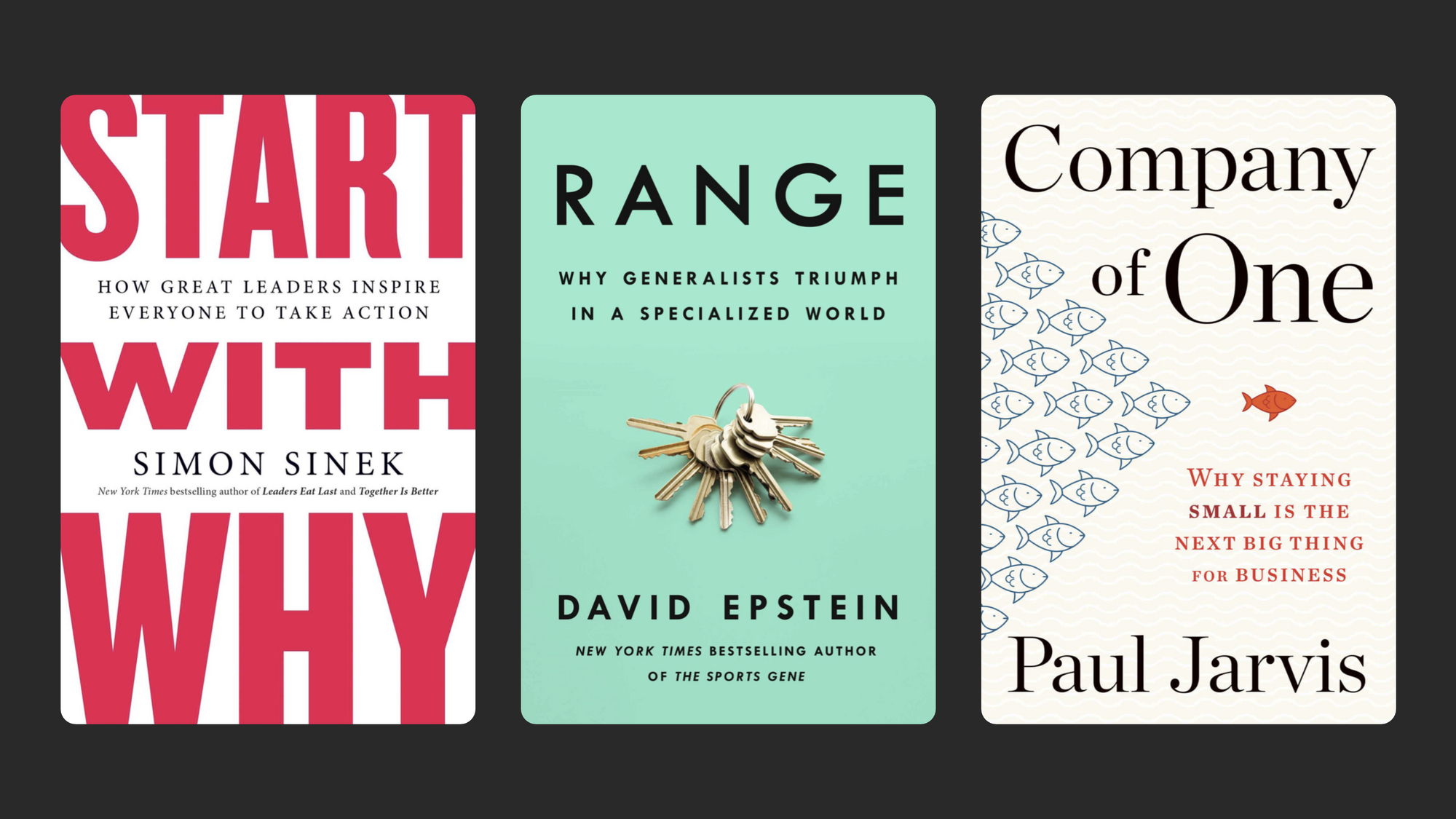The 3 Best Business Books I've Read Recently

2019 was the year of personal productivity books for me, and 2020 has turned out to be the year of business books. I’ve read half a dozen of them this year and wanted to call out 3 that stood out to me.
Company of One
Company of One is my most recent read and it looks at what it’s like to run companies in ways that don’t make growth the ultimate goal for everything. I’m a metric guy, and I love seeing charts go up and to the right with no end in sight. This book doesn’t say growth is bad, it takes the position that growth for the same of growth is bad.
In a world of VC funded ventures that need to gain millions of users quickly before they even have a business model, this book is a fresh glass of water in a world obsessed with growth in all things at all costs.
If you are working for a bigger company, this book has some advice for making your personal role follow some of these principles, but if you’re a business owner or work for yourself, the advice in this book is particularly fantastic.
Start with Why
Start with Why and The Infinite Game, both by author Simon Sinek, are amazing books that address similar topics, but don’t feel like they’re treading on each other’s feet. Start with Why’s ultimate premise is about ripping one’s focus from “what” you’re doing and moving it to “why” you’re doing something. It sounds simple, but so much of the world is focused on what others are doing, what we can do to catch up, what customers are choosing, but often much less time is spent understanding why these things are happening.
The book also gets into talking about customer values and the chapters on this were incredibly informative in helping me talk about technology, especially the iOS vs Android debate, with more empathy for other views.
Range: Why Generalists Thrive in a Specialized World
Finally, we have a more personal business book, and one that basically runs counter to the 10,000 hours rule we’ve all heard over and over. While there are some things that benefit from extreme specialization, and there is something to be said for people who are absolute masters of their crafts, Range posits (with data, of course) that in the modern workplace, it’s more valuable for people to be skilled at a range of things, not just one corner of talent.
As I wrote about this book when I was reading it in January:
I will say that although I didn’t really think of it this way, much of the success I’ve had in my career has come from being able to think critically and perform many things well.
[...]
The fact that I can do multiple things is a huge asset, and makes me a more valuable employee. Going to school for video editing, teaching myself UI/UX design, and immersing myself in the world of people who care deeply about great software has been very beneficial in the long run.
I do a lot of things at my work, as well as a lot of things here in my various BirchTree projects. I’m not the best in the world at any of these, but a large factor in me finding some semblance of success in recent years has been my ability to adapt, to learn new things quickly, and to be able to raise my hand and say “I can do that” to more than just my core competencies.